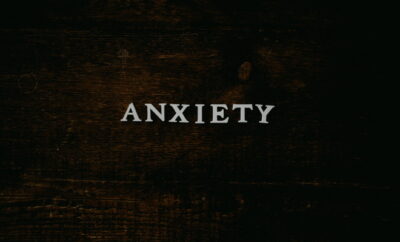
Health x Wellness
Understanding Depression For Men
Depression is a common mental disorder which negatively affects how you feel, think, or act. This is a medical condition, and like other conditions, requires a consultation with a doctor or other healthcare professional.
It is estimated that about 5 percent of adults suffer from depression, and although the rate of depression is higher amongst women (about 5 percent) compared to men (about 3 percent), this trend may be due to men having a lower tendency to seek help for the disorder.
It is important to address depression in men as symptoms tend to manifest more as restlessness and impulsiveness in men, which could potentially lead to greater dysfunction in daily life. A particularly concerning consequence of depression in men is that of higher suicide rates compared to women (at a ratio of almost 5:1), as men tend to use more lethal methods.
There is no one specific cause for depression. The disorder usually results from the interaction of biological, psychological, and social factors. These same factors can also perpetuate and prolong a depressive episode.
Some known risk factors include:
- Genetic factors: If a family member has depression or other mental illnesses
- Psychosocial stress: Unemployment, isolation, changes in life stages, stressful situations
- Chronic medical issues or even low testosterone levels
- Substance abuse: Chronic alcohol use or other illicit substances
What are the signs and symptoms for depression amongst men?
During a depressive episode, a person may experience low mood and other symptoms that include:
- Loss of pleasure or interest in activities
- Restlessness
- Lethargy
- Loss of appetite
- Negative cognitions such as feelings of hopelessness, guilt, or suicidal thoughts
These symptoms usually occur for nearly the entirety of the day for at least two weeks. The symptoms are persistent and pervasive, leading to reduced ability or inability to carry out any meaningful activities.
In essence, depression affects one’s thoughts, feelings, behaviour, and ability to handle daily responsibilities.
Symptoms of depression in men differ from women in a number of ways. For instance, men who are depressed tend to show more aggressive behaviour and irritability instead of sadness. Apart from that, physical issues may also arise such as having a lower sex drive, chest tightness, or digestive problems.
Some statistics also suggest that men struggling with depression may turn to drugs or alcohol to cope, with rates of substance use higher in depressed men than in depressed women.
How to overcome male depression?
Depression is a medical condition, and like other conditions, requires a consultation with a doctor or other healthcare professional. The key thing is to not let the diagnosis make you feel as if you are lesser than the others. An important step in recovering from a depressive episode is seeking help from a doctor or a mental health professional such as a psychologist.
He or she will be able to evaluate your condition and arrive at a diagnosis either through the conversation, or in other cases, through talking with a family member or friend. They may also decide if there is a need to involve another health professional in terms of further investigations, medications, or talking therapy.
There are effective treatment options for depression and recommendations will be given depending on the cause, severity, and pattern of depressive episodes. For example, if depression is caused by a medical condition such as a thyroid condition, treatment may be to address the thyroid disorder. However, if it is a primary cause unrelated to other medical conditions, your doctor may recommend talking therapy such as cognitive behavioural therapy, and/or antidepressant medications.
A significant thing to note is that a depressed person does not choose to stay depressed, and depression is not a result of poor choices.

If you feel that you might be struggling with depression, seek a consultation with a professional as soon as possible. Try to put into place a stable routine that includes regular exercise, social time, and avoid trying to take on too many activities at one time. It is also helpful to consciously avoid negative coping habits such as resorting to comfort drinking or use of illicit substances.
If you suspect that somebody may have depression, you may direct him to a mental health professional. It may be more difficult for men to be willing to seek help for depression due to perceptions of societal roles, but constant support and encouragement is always helpful if that person is on a journey to seek help.
In conclusion, men with depression are at a higher risk of suicide, but there are always avenues to reach out for help. If there is any cause of concern for self-harm or suicide, please seek assistance early with the police or emergency services.
Helplines
- National Care Hotline: 1800-202-6868 (8am-12am daily, from 1 Sep 2020)
Mental Well-being
- Fei Yue’s Online Counselling Service
- Institute of Mental Health’s Mental Health Helpline (6389-2222)
- Samaritans of Singapore (1800-221-4444)
- Silver Ribbon Singapore (6385-3714)
Counselling
- TOUCHline (Counselling) – 1800 377 2252
Violence or abuse
- Big Love Child Protection Specialist Centre (6445-0400)
- HEART @ Fei Yue Child Protection Specialist Centre (6819-9170)
- PAVE Integrated Services for Individual and Family Protection (6555-0390)
- Project StART (6476-1482)
- TRANS SAFE Centre (6449-9088)
Marital and parenting issues
- Community Psychology Hub’s Online Counselling platform
For other helplines and mental health related support
- go.gov.sg/hotlines (BELLE, Beyond the Label helpbot)
www.msf.gov.sg/Pages/Contact-Us.aspx
Article contributed by DTAP Clinic. Established in 2005, DTAP (Dr. Tan & Partners) clinics, a pioneer of the GP plus, or “General Practice with Special Interest” model in Singapore, provides holistic and comprehensive medical care for everyone. We provide basic GP services with a key focus in HIV & STD testing and management, Men’s Health (Andrology), Women’s Health, Aesthetics, and Chronic Disease Management services.
Photo by Mitchel Lensink on Unsplash
Photo by Dan Meyers on Unsplash









